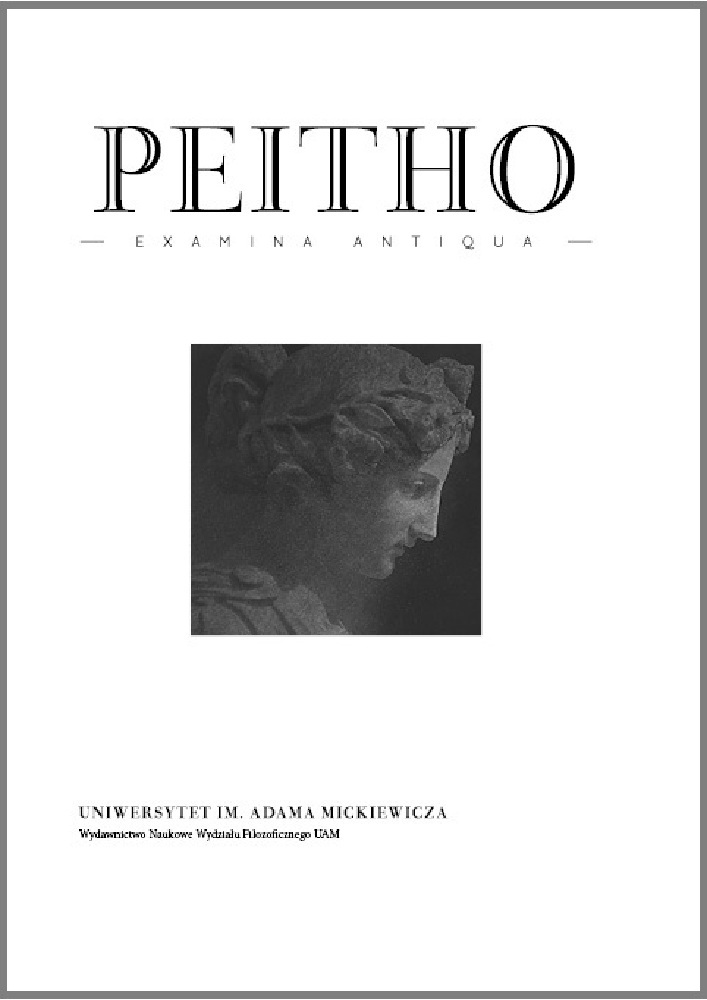Abstract
The form of the Good in Plato’s Phaedo and Republic seems, by our standards, to do too much: it is presented as the metaphysical principle, the epistemological principle and the principle of ethics. Yet this seemingly chimerical object makes good sense in the broader context of Plato’s philosophical project. He sought certain knowledge of necessary truths (in sharp contrast to the contingent truth of modern science). Thus, to be knowable the cosmos must be informed by timeless principles; and this leads to teleology and the Good. The form of the Good, it is argued, is what makes the world knowable insofar as it is knowable. This interpretation plugs a significant gap in the scholarship on the Good and draws attention to a deep connection between Plato’s epistemology and his teleological understanding of the cosmos.
References
Allen, R. E., 1970, Plato’s Euthyphro and the Earlier Theory of Forms, London.
Annas, J., 1982, “Aristotle on Inefficient Causes”, Philosophical Quarterly 32, pp. 311–26. DOI: https://doi.org/10.2307/2218698
Annas, J., 1993, The Morality of Happiness, Oxford.
Bailey, D. T. J., 2014, “Platonic Causes Revisited”, Journal of the History of Philosophy 52, pp. 15–32. DOI: https://doi.org/10.1353/hph.2014.0004
Benitez, E. E., 1995, “The Good or The Demiurge: Causation and the Unity of Good in Plato”, Apeiron 28, pp. 113–40. DOI: https://doi.org/10.1515/APEIRON.1995.28.2.113
Burnyeat, M. F., 1981, “Aristotle on Understanding Knowledge”, in: E. Berti (ed.), Aristotle on Science in the Posterior Analytics, Padua, pp. 79–139.
Cairns, D., Herrmann, F.-G., Penner, T. (eds.), 2007, Pursuing the Good: Ethics and Metaphysics in Plato’s Republic, Edinburgh. DOI: https://doi.org/10.1515/9780748631889
Cobb, W. S., 1977, “Plato’s Treatment of Immortality in the Phaedo”, Southern Journal of Philosophy 15, pp. 173–188. DOI: https://doi.org/10.1111/j.2041-6962.1977.tb01312.x
Evans, D., 2000, “‘Beyond Reality’: Plato’s Good Revisited”, Royal Institute of Philosophy 47, pp. 105–18. DOI: https://doi.org/10.1017/S1358246100006949
Foster, M. B., 1934, “The Christian Doctrine of Creation and the Rise of Modern Natural Science”, Mind Association 43, pp. 446–68. DOI: https://doi.org/10.1093/mind/XLIII.172.446
Frede, D., 1992, “Accidental Causes in Aristotle”, Synthese 92, pp. 39–62. DOI: https://doi.org/10.1007/BF00413741
Frede, M., 1987, “The Original Notion of Cause”, in: M. Frede, Essays in Ancient Philosophy, Minneapolis, pp. 125–50.
Freeland, C. A., 1991, “Accidental Causes and Real Explanations”, in: L. Judson (ed.), Aristotle’s Physics: A Collection of Essays, Oxford, pp. 49–72.
Grene, M., 1963, A Portrait of Aristotle, Chicago.
Hahm, D. E., 1977, The Origins of Stoic Cosmology, Columbus.
Hankinson, R. J., 1989, “Galen and the Best of All Possible Worlds”, Classical Quarterly 39, pp. 206–27. DOI: https://doi.org/10.1017/S0009838800040593
Hooykaas, R., 2000, Religion and the Rise of Modern Science. Vancouver.
Keyt, D., 1969, “Plato’s Paradox that the Immutable is Unknowable”, Philosophical Quarterly 19, pp. 1–14. DOI: https://doi.org/10.2307/2218184
Long, A. A., 1986, Hellenistic Philosophy: Stoics, Epicureans, Sceptics, Second Edition, Berkeley–Los Angles.
Moss, J., 2019, “Is Plato’s Epistemology about Knowledge?”, in: S. Hetherington, N. D. Smith (eds.), What the Ancients Offer to Contemporary Epistemology, New York, pp. 68–85. DOI: https://doi.org/10.4324/9780429344138-6
Penner, T., 2007, “What is the Form of the Good the Form of? A Question About the Plot of the Republic”, in: Cairns, Herrmann, Penner DOI: https://doi.org/10.3366/edinburgh/9780748628117.003.0002
(2007), pp. 15–41.
Reeve, C. D. C., 2000, Substantial Knowledge: Aristotle’s Metaphysics, Indianapolis.
Rowe, C., “The Form of the Good and the Good in Plato’s Republic”, in: Cairns, Herrmann, Penner (2007), pp. 124–53. DOI: https://doi.org/10.3366/edinburgh/9780748628117.003.0007
Santas, G., 1983, “The Form of the Good in Plato’s Republic”, in: J. P. Anton, A. Preus (eds.), Essays in Ancient Greek Philosophy, Vol. 2,
Albany, pp. 232–63.
Sedley, D., 1998, “Platonic Causes”, Phronesis 43, pp. 114–32. DOI: https://doi.org/10.1163/15685289860511050
Seel, G., 2007, “Is Plato’s Conception of the Form of the Good Contradictory?”, in: Cairns, Herrmann, Penner (2007), pp. 168–96. DOI: https://doi.org/10.3366/edinburgh/9780748628117.003.0009
Sharma, R., 2009, “Socrates’ New Aitia: Causal and Metaphysical Explanations in Plato’s Phaedo”, Oxford Studies in Ancient Philosophy 39, pp. 137–77.
Wolfsdorf, D., 2005, “Euthyphro 10A2–11B1: A Study in Platonic Metaphysics and its Reception Since 1960”, Apeiron 38, pp. 1–71. DOI: https://doi.org/10.1515/APEIRON.2005.38.1.1
License
Copyright (c) 2022 Aidan R. Nathan

This work is licensed under a Creative Commons Attribution 4.0 International License.
Peitho provides immediate open access to its content on the principle that making research freely available to the public supports a greater global exchange of knowledge.

